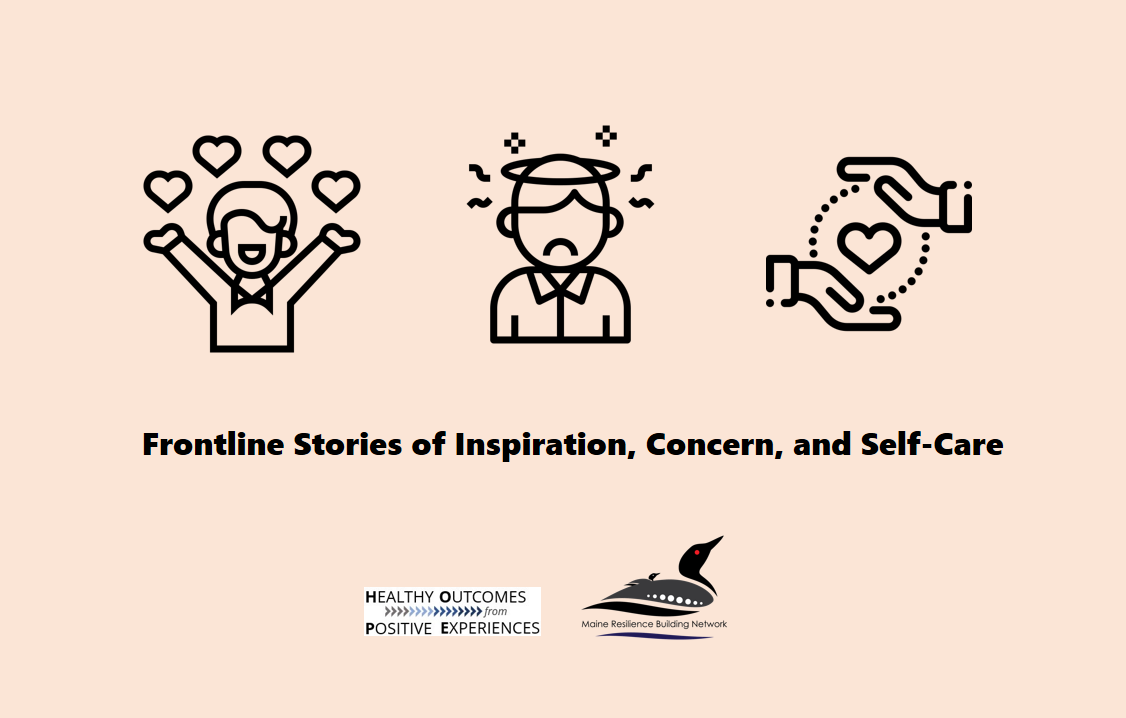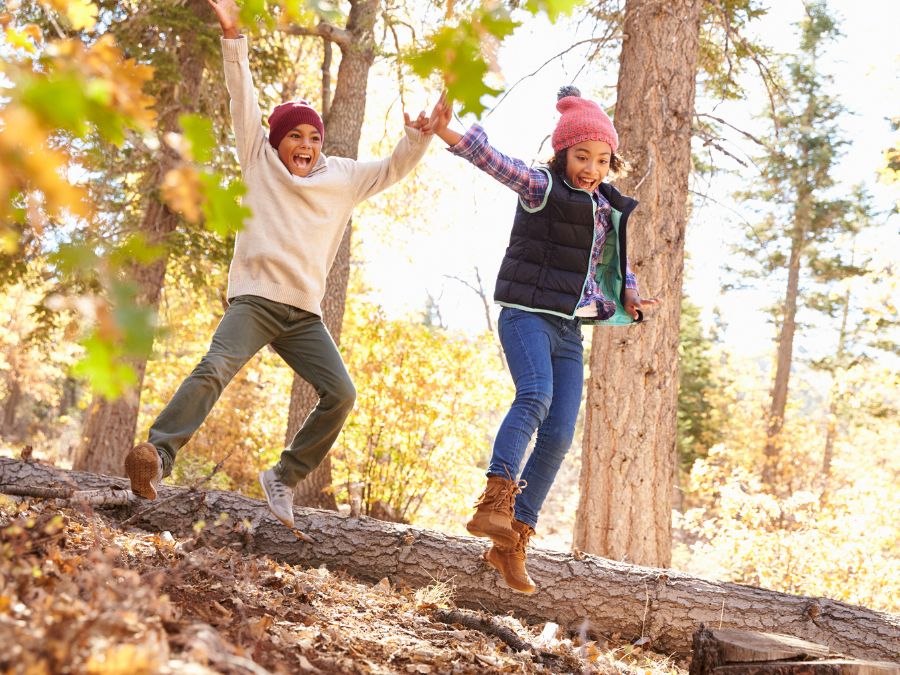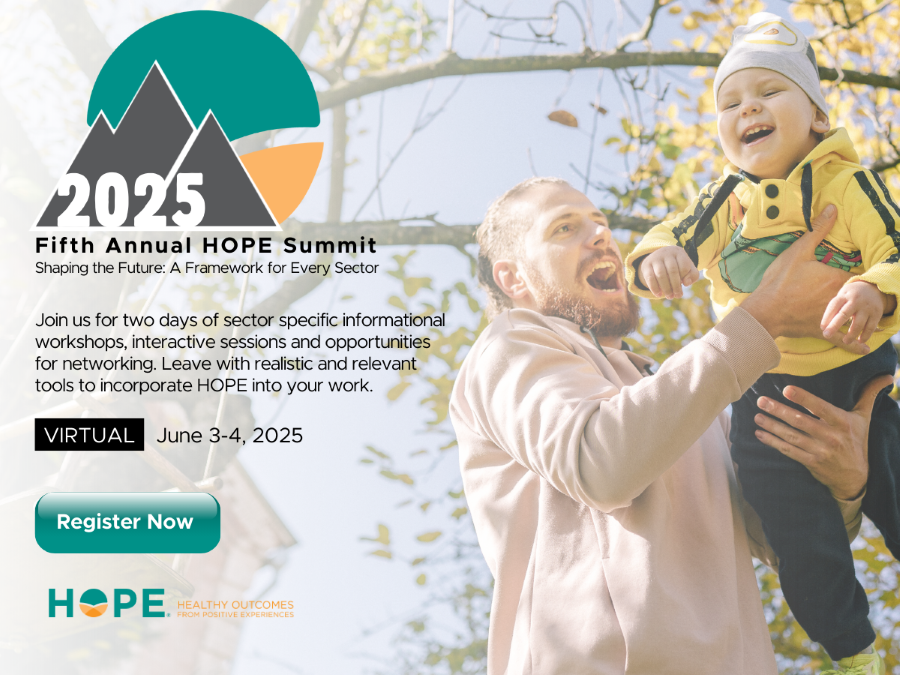
Last Monday, Dr. Robert Sege was invited by the Maine Resilience Building Network (MRBN) to speak about HOPE and Positive Childhood Experiences during an interactive webinar. Usually an in-person meeting, the gathering attracted nearly 300 virtual participants. Our Zoom screens were tiled with pages and pages of faces, front-line workers across Maine who continue to serve families during this time. Among the audience were teachers, social workers and mental health professionals, clinical and medical practice based staff, school nurses, and those who work for organizations serving children and families. At the heart of the meeting, Dr. Sege turned the spotlight on these important workers, giving them a platform to share stories of inspiration, concern, and self-care with each other. Below, Kini-Ana Tinkham, MRBN’s executive director, sheds light on MRBN and the virtual event.
Can you introduce MRBN for our blog readers?
The Maine Resilience Building Network (MRBN) is a statewide nonprofit organization with a strong network of individuals and organizations working to improve the health and welling of Maine’s children, families, and communities.
How does HOPE fit into your work at MRBN?
MRBN’s mission is to promote resilience in all people by increasing the understanding of the impacts of Adverse Childhood Experiences (ACEs) and the importance of building resilience through protective factors such as positive relationships. Resilience, which includes positive connections, can be learned and cultivated at any age. Preventing and healing ACEs is possible. No matter our age, there are science-informed ways to support resilience and positive experiences.
What was your goal in setting up this online event?
The MRBN team wanted to bring together network members, colleagues, and organizations from across the state serving children and families during Covid-19, to thank them for giving 110% every day. The HOPE model offered a framework for participants to share family strengths and hope while acknowledging concern for added stress felt by families. During the event, reminding colleagues about the importance of pauses and other self-care practices to avoid compassion fatigue or vicarious trauma was highlighted.
Echoing Kini, we at the HOPE team are grateful for workers serving children and families during Covid-19. Here is a sampling of their stories, pulled from the event chat box:
Inspiration
- I have been encouraged by families who have given themselves to permission to do what works best for [them]. Recognizing that there is no perfect way to do this. The most important things are that the children are feeling safe and taken care of.
- I keep finding ways humans adapt; drive by birthdays, visits to the retirement community to see grandparents and now hug contraptions. It’s still hard but I like to find the creative ways humans continue to fight!
- I have a friend who has been social distance visiting people so they feel connected. She will stop by and sit in your garden or by the window and just chat. It’s really nice to have human interaction and adult discussion!
- My son’s family is an inspiration to me. They have changed their habits to make sure that their almost 4 year old son is protected. They take turns shopping. Mom works at the hospital and she undresses in the garage and goes right to the shower before she even hugs her son.
Concern
- My concern is people who are living alone. I know several of all ages. They all express similar things regarding social isolation, not being able to get any hugs or touch of any kind, and if they contract COVID, they would be taken to the hospital and be there alone.
- I worry about the barriers families face with lack of housing, transportation and having food insecurities. I also worry about circumstances where abuse is present. As well as the regression that we might see for school aged children both academically and socially.
- My concern goes to the students whose safe place was school and may not have the best home life. Knowing that I am unable to check in with the kiddos that I work with on a daily basis like I used to be able to. Furthermore the kiddos who are lacking social engagement with their peers as some of the younger kids may not fully understand why they can’t see their friends like they used to be able to.
- I have been especially concerned about families who have a member/s with a mental illness. I believe mental health has been a great concern amidst the pandemic and people are adapting by calling their therapists or even just someone who has offered an open ear.
Self-care
- Identifying and celebrating the positives, perhaps experiences that don’t happen frequently in ordinary times (connecting with family or friends electronically during the middle of the day, having more time to read a long book, etc.)
- I picked up my camera again after years of neglecting it. Helped me get back out into the woods and in nature.
- I like to rock out to Disney music with my 4 year old and 2 year old…It’s good for the soul!
- Giving myself permission to feel my feelings. Giving myself permission to just sit down for a second and breathe. And then channeling what I am feeling into yoga, baking, creative play with my tiny human, etc.
After an incredible session of group connection, of offering space to share joys, worries, and self-care, Ana Hicks, Children’s Cabinet Coordinator with the Governor’s Office of Policy Innovation and the Future in Maine, closed the session with some words of gratitude. Likewise, we will end this blog with an excerpt from the end of her closing comments:
“I feel lucky to be here to be able to thank you. Thank you for getting up every day. Continuing to give your all for those you serve and care for. Continuing to keep relationships going that are critical for the health and well-being of children and families who are facing incredible stress. You are professionals. Many of you have been trained to help people cope with stress and anxiety. But there are no playbooks for this pandemic. You are figuring it out as you go along. Working with your families, hopefully getting some support from colleagues to do so. I’m sure it can feel lonely at times.
But your support is so critical to so many in this challenging time. And we know how much you care for the people that you serve. We really cannot thank you enough for all that you are doing to try to meet the mental health needs and the basic needs of children and families are met.
Thank you. Thank you for stepping up in these extremely challenging time and being there for children and families in need.”


